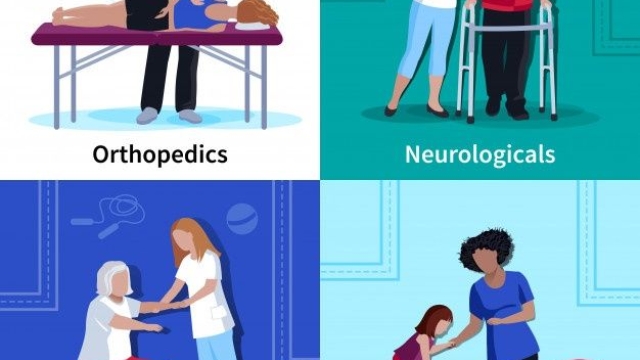
Physiotherapy, a transformative branch of healthcare, has been making waves in recent years with its remarkable ability to restore function and improve quality of life for countless individuals. Through a holistic approach that combines evidence-based techniques with personalized care, physiotherapists help patients of all ages overcome physical limitations and achieve optimal wellness. Whether recovering from an injury, managing chronic pain, or enhancing athletic performance, physiotherapy offers a comprehensive solution that addresses not just symptoms but the root causes of physical discomfort. This dynamic field continues to evolve, embracing new technologies and innovative strategies to empower individuals in their journey towards better health and mobility.
Benefits of Physiotherapy
Physiotherapy is a holistic approach to wellness that focuses on improving movement and function through targeted exercises and therapies. One of the key benefits of physiotherapy is its ability to reduce pain and discomfort, helping individuals regain mobility and independence in their daily activities.
Moreover, physiotherapy plays a crucial role in preventing injuries by identifying and addressing underlying issues that may contribute to physical limitations. By working with a physiotherapist, individuals can improve their strength, flexibility, and balance, leading to a decreased risk of future injuries.
Additionally, physiotherapy promotes overall health and well-being by enhancing physical function and promoting proper body mechanics. Through personalized treatment plans, individuals can achieve better posture, movement patterns, and overall quality of life.
Innovative Approaches in Physiotherapy
In recent years, the field of physiotherapy has experienced a significant transformation through the integration of cutting-edge technologies. One such innovative approach is the use of virtual reality (VR) in rehabilitation. By immersing patients in interactive virtual environments, physiotherapists can enhance the effectiveness of treatments and engage patients in a more stimulating way.
Another groundbreaking approach is the utilization of wearable devices to track patients’ progress and provide real-time feedback. These devices, such as fitness trackers and motion sensors, enable physiotherapists to monitor patients’ movements outside of the clinic setting, offering a more comprehensive understanding of their daily activities and adherence to treatment plans.
Furthermore, the field of tele-rehabilitation has emerged as a game-changer in making physiotherapy more accessible to patients in remote areas or those unable to travel to clinics. Through video consultations and remote monitoring, patients can receive professional guidance and support from physiotherapists, ensuring continuity of care and promoting better outcomes in the comfort of their own homes.
Future Trends in Physiotherapy
Advanced technology continues to drive future trends in physiotherapy, offering innovative tools and solutions for improved patient care. Virtual reality (VR) and augmented reality (AR) are increasingly integrated into physiotherapy practices, providing immersive experiences for rehabilitation exercises. These technologies not only enhance patient engagement but also enable therapists to monitor progress more effectively.
Personalized treatment plans are shaping the future of physiotherapy, with the integration of data analytics and artificial intelligence (AI). By analyzing patient-specific data, such as movement patterns and recovery rates, AI algorithms can generate tailored rehabilitation programs that optimize outcomes. This individualized approach ensures that each patient receives customized care based on their unique needs and progress, leading to more efficient and effective rehabilitation.
The shift towards preventative and holistic care is a key trend in the future of physiotherapy. Therapists are increasingly focusing on proactive strategies to prevent injuries and improve overall well-being. Incorporating elements such as nutrition counseling, mental health support, and lifestyle modifications into physiotherapy sessions helps patients achieve long-term health goals and maintain optimal physical function. This comprehensive approach promotes wellness beyond rehabilitation, emphasizing the importance of holistic care in physiotherapy practices.
